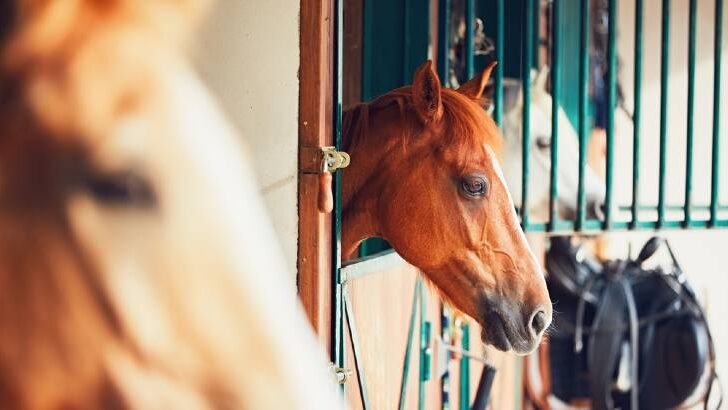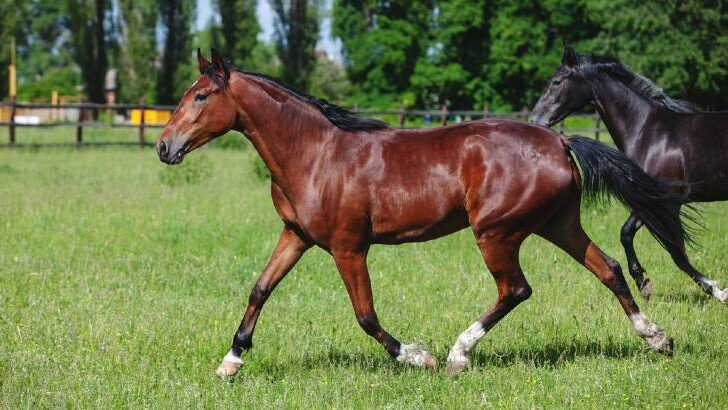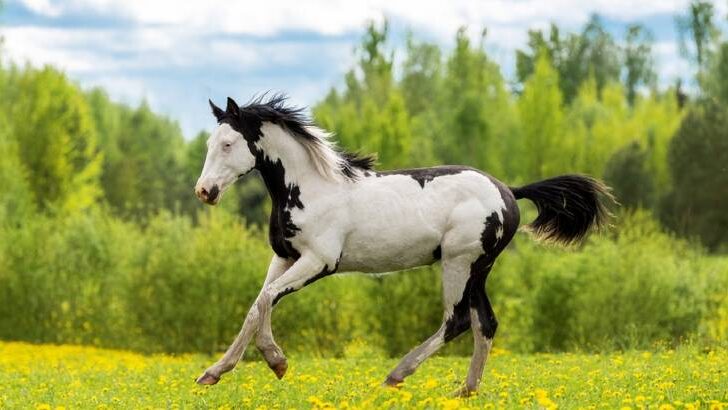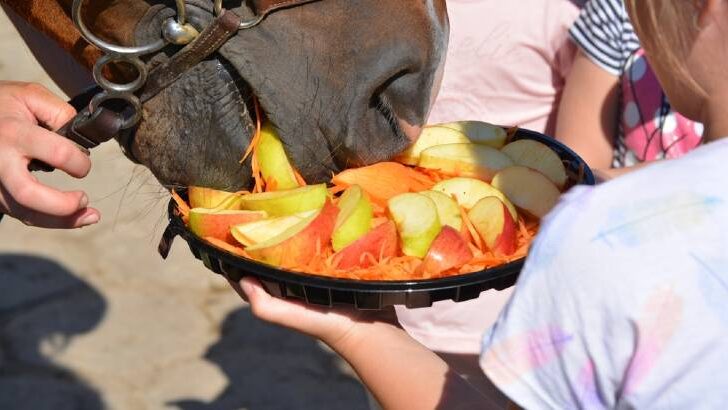Affiliate Disclaimer
As an Amazon Associate I earn from qualifying purchases. It helps me keep the website going. Thank you for your support.
Buying a horse is a big decision, and it can take a lot of time to find your new best friend. As you look through ads for potential horses, you might see some mention of weaving. When considering whether to buy a horse that weaves, it’s important to understand what weaving is, and why horses weave.
Careful thought is required before deciding to buy a horse that weaves. Consider factors like intended use, riding goals, and management practices in your evaluation. Things like the horse’s health and soundness, and the severity of the weaving, also impact your decision.
In this article, we’ll explore the key factors to consider if you are thinking of buying a horse that weaves.
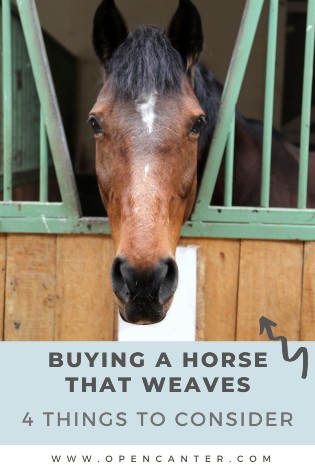
What Is Weaving?
Firstly, let’s take a short look at what weaving is and why horses do it. Weaving is a repetitive swaying motion, where the horse swings its head and shifts its weight from side to side.
Weaving is a stereotypical behavior – it serves no purpose other than to relieve stress, anxiety, or boredom. The reason weaving relieves stress and anxiety is that it causes the release of endorphins, also known as ‘feel-good’ hormones (source). It is this that makes weaving habitual, and very hard to stop.
Horses don’t learn to weave; it is a coping mechanism they use when they are bored, anxious, or frustrated. It is not a deliberate choice made by the horse, but rather a behavior caused by their environment.
The presence of weaving behavior indicates that the horse is unhappy in its current environment. Before agreeing to buy a horse that weaves, make sure you talk with the owner in detail. You can ask them questions about the horse’s routine, whether it is stabled or kept outside, and its temperament.
Here is a short clip of a horse weaving in their stall…
Four Considerations Before Agreeing to Buy a Horse That Weaves:
As with buying any new horse, you need to make sure that the horse will suit you. This means that they have the right temperament and the right education. Additionally, they need to be the right age, height, and in some cases, breed or gender.
Deciding whether to buy a horse that weaves requires some extra thought. Even if they are ideal in every other aspect, the weaving behavior might cause too much of a negative impact.
Here are some of the key things that you need to consider:
- Intended activities
- Health and soundness
- Management and environment
- Severity
Let’s explore each of these in more detail.
Consideration 1: Intended Activities
Before looking for a horse to buy, you should already know what you want to do with your horse. Knowing this information tells you what type of horse you are looking for. If you want to trail ride, then buying a horse trained for top-level dressage is unlikely to suit you.
Knowing your riding goals is important when it comes to deciding whether to buy a horse that weaves. Weaving can affect the ability of the horse to perform.
If you are looking for a casual riding partner, then weaving is unlikely to affect your horse greatly. However, if you are looking for a top-level competition horse, then weaving behavior can greatly impact their performance.
Weaving can be managed; however, it will always mean that the horse is predisposed to weave in times of stress. Competition horses face stress during travel and competition, and this can have huge effects on performance.
Consideration 2: Health and Soundness
Due to its repetitive nature, weaving can have negative impacts on the horse’s physical well-being. This is truer for horses who are very severe weavers, or who have been weaving for much of their lives.
The motion can place extra strain on the muscles of the neck and shoulders, along with the joints of the forelegs. It can also lead to uneven hoof wear on the front hooves.
It is always recommended that you get a vet check before agreeing to buy a new horse. This will highlight any health issues the horse has, and if they require any extra maintenance. It will also tell you if the horse is only capable of reaching a certain level of competition.
A vet check is even more important when looking at a horse that weaves. The vet will be able to examine the areas affected by weaving, for any damage. They will also be able to look at other issues commonly associated with stress or boredom, like gastric ulcers.
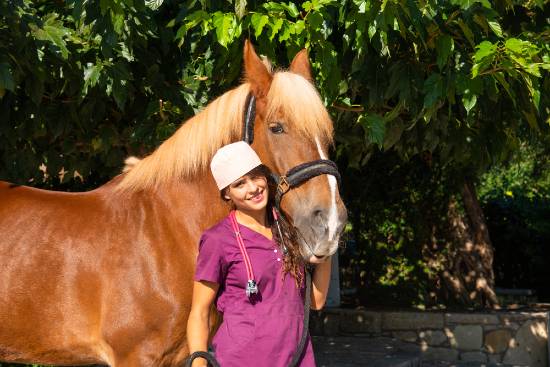
Consideration 3: Management and Environment
This is perhaps one of the most important considerations. Weaving behavior is most commonly associated with stabled horses, or those with frequently changed routines or herdmates. You need to be aware that your new horse might come with some special requirements.
Make sure you have the means to cater to keeping a horse that weaves. Horses that weave often fare better when they are kept outdoors with a consistent herd. Horses that weave aren’t best suited to boarding barns with horses constantly coming and going, or being constantly stabled.
However, if you are able to keep the horse outside with a paddock friend, you might find the weaving decreases or disappears. However, as soon as the horse is anxious, such as during a change in routine, the weaving may start again.
Consideration 4: Severity
The severity of the weaving behavior is likely to have a huge impact on your decision. Some horses very rarely weave, when they are kept in a low-stress environment. Others are chronic weavers, regardless of their environment or routine.
Buying a horse that is a chronic weaver is generally not recommended. This is because it is less likely that the horse will ever stop weaving. The horse is also at a greater risk of having existing physical issues resulting from weaving.
However, if the horse is only a mild weaver or only weaves in certain situations, this can be overlooked. If you have the means to manage the horse correctly, they might only weave rarely. If the horse meets all your other requirements, then they are a suitable choice.
However, there are some criteria that are ‘deal breakers’ when it comes to weaving, no matter the severity. These include regular competition or travel, high-performance expectations, permanent stabling, or routine changes.
Talking to the horse’s owner is the only way you will learn about the severity of the weaving. They will be able to tell you when the horse normally weaves, and what they have done to manage it.
If I Buy a Horse That Weaves, Can I Train It To Stop?
With the right approach and professional guidance, weaving can be decreased or stopped in some horses. In some cases, simply turning the horse outside and providing a consistent routine can drastically reduce weaving.
However, some horses will weave throughout their lives. Reducing or stopping the behavior in these horses is a lengthy process. It is important to evaluate whether you have the resources, time, and expertise to commit to the process.
In some cases, you may require assistance from your vet. This can involve prescription medication, which can become costly. Additionally, you may be recommended to include a calming supplement in your horse’s feed. This can become expensive over time.
There are other options available to ‘distract’ the horse from weaving. However, these can be costly to purchase, and may only work for a short period of time. You can read more about some measures you can take to manage weaving here.
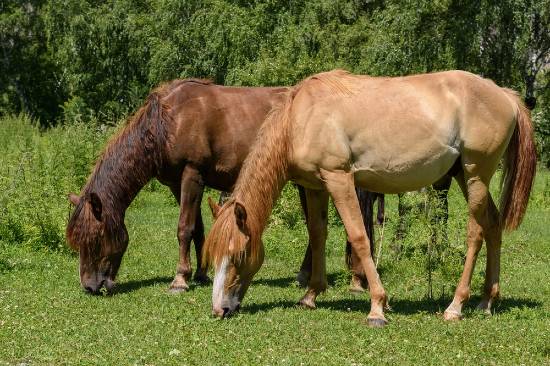
Are Horses That Weave Cheaper to Buy?
Weaving behavior can affect the price and marketability of the horse. This depends on the severity of the weaving, and how easily it can be managed. It also depends on the education level of the horse.
For example, the trail riding horse who weaves only when stabled, is unlikely to be affected greatly. This is because the horse is not educated to a high level, and the weaving behavior is managed simply by avoiding stabling.
However, the top competition horse that is a chronic weaver may have its price affected more. This horse will be impacted more in terms of performance by the weaving, along with it being harder to manage.
Depending on the severity of the weaving, you may be able to negotiate a lower price for the horse. However, keep in mind that a weaver may cost more in upkeep; which can outweigh the reduced purchase price.
Are Horses That Weave More Expensive to Keep?
Management costs for horses that weave depend on how severe the weaving is, and how it is managed. The cost to keep a mild weaver is unlikely to differ from the normal costs of keeping a horse.
Interestingly, horses who weave might be cheaper to keep in some aspects. One example of this is the difference in the cost of a field and a stable at a boarding facility. Stables usually attract higher boarding rates due to their installation and maintenance costs.
Horses who weave often fare better when kept in turnout permanently. If your horse shares a field with another horse, your costs may be reduced further. Additionally, managing field-kept horses requires less time on a daily basis.
However, the chronic weaver might have more expenses in terms of feeds, medications, or supplements. The cost of calming supplements quickly adds up, as do veterinary medications. Even if you only use these products to help break the weaving habit, they can become expensive.
Horses that spend a lot of time weaving might also need extra hoof care or body work. Weaving can cause hooves to wear unevenly, resulting in hooves that need to be trimmed or shod more often. There can also be extra strain on muscles and ligaments, resulting in more frequent body work or chiropractic costs.
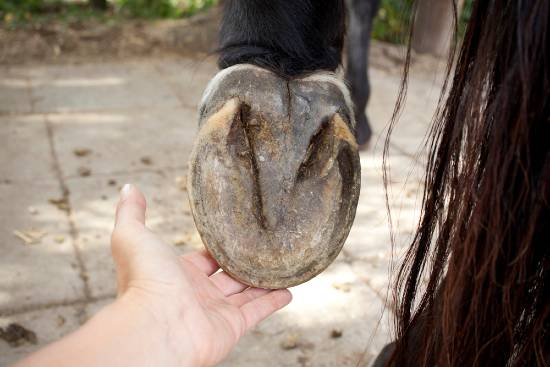
Lastly, very severe weavers may also incur maintenance costs to cover any property damage they cause. While not nearly as destructive as crib biting, weaving can cause damage to flooring or gateways.
Final Thoughts
While weaving itself is not a desirable behavior, it should be considered alongside your riding goals and personal circumstances. These include your management practices and training options. The health and soundness of the horse is also important. Before deciding to buy a horse that weaves, make sure you seek advice from professionals like your trainer or veterinarian.

